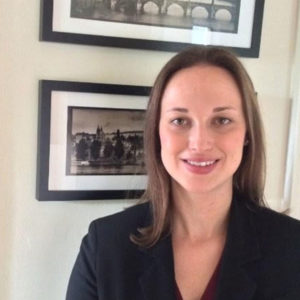In 2021, West Virginia legislators enacted a voucher program that privatizers tout as the most expansive in the country. The program also violates the West Virginia Constitution, as some brave parents have challenged in state court in a lawsuit called Beaver v. Moore. The plaintiffs in the case, who my colleagues and I have the privilege of representing as part of our work on the Public Funds Public Schools campaign, are deeply concerned about the effect the voucher program would have on the state’s already underfunded public schools. It would cause precious public dollars that are desperately needed for teachers, counselors, building repairs, special education, and other essential programs and services, to be siphoned away to unaccountable private institutions.
West Virginia’s voucher law has no eligibility criteria other than the requirement that students attend public school for 45 days or be entering kindergarten—and even that 45-day requirement will disappear in a few years if there isn’t enough voucher uptake. There is no family income limitation, meaning even the most affluent students and those already planning to attend private school will have their expenses subsidized by the state. And these vouchers—which are structured as “education savings accounts (ESAs)”—can be used on a broad array of private education expenses, as well as homeschooling. Over time, the law will force West Virginia taxpayers to subsidize all private and homeschooling in the state, totaling over $120 million a year.
West Virginia’s voucher law is called the Hope Scholarship Act. But students with disabilities cannot hope to use it, because they would be hard pressed to find a private school willing to admit them or meet their needs. Students who identify as LGBTQ will also be excluded. Students in poverty are functionally barred because the voucher amount—this year around $4300—won’t cover most private school tuition and fees, let alone the cost of meals, transportation, and other expenses that are covered in public schools.
Even if the most vulnerable students could actually use these vouchers, they wouldn’t have any solid hope of receiving a quality education, because there are no academic standards for private education providers receiving the voucher funds and no accountability measures for the state to ensure students are well served. Moreover, ample research from multiple states demonstrates that voucher programs do not improve academic outcomes and often significantly diminish them.
This summer, after hearing from all the parties to the lawsuit, the Circuit Court of Kanawha County—a West Virginia trial court in Charleston—granted the Beaver plaintiffs’ request to halt implementation of the voucher law. The judge agreed with the plaintiffs that the voucher law violated multiple provisions of the state constitution, including its Education Article, which guarantees a thorough and efficient system of public schools for all students.
The court ruled that the Legislature has no authority to fund a separate system of private schooling, and that the voucher law harms the state’s ability to fulfill its constitutional obligation to maintain and support the public schools. The court also agreed that the voucher law violates the state constitution’s prohibition against “special laws” that treat similar people differently, because it excludes voucher students from critical protections afforded public school students against discrimination based on disability, religion, or LGBTQ status.
The State and the Institute for Justice—a pro-voucher legal group that intervened in the lawsuit—have already appealed the trial court’s decision. They also asked the trial court, the intermediate appellate court, and then the West Virginia Supreme Court to allow the voucher program to proceed while the case is pending—a request all three courts rejected. West Virginia’s public school advocates will not back down in the face of this relentless push for privatization, and Public Funds Public Schools will support them each step of the way. Although the forces attempting to privatize education tried to hold up West Virginia as a model of voucherization, it is public school advocates there who are providing a shining example for the nation.
The West Virginia Supreme Court of Appeals will hear oral argument in Beaver v. Moore on October 4, 2022, at 11:30 a.m. EDT. You can watch a live webcast here.
Jessica Levin, Education Law Center Deputy Litigation Director, is the Director of Public Funds Public Schools, a national campaign to ensure that public funds for education are used to support and strengthen public schools.

